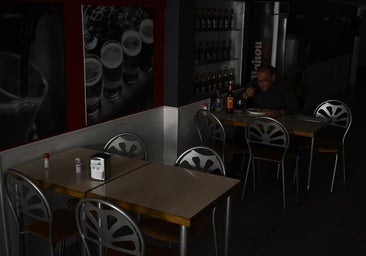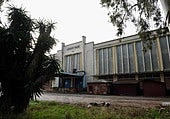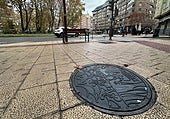Thousands Rescued from Lifts Strain Emergency Services in Initial Hours
Andalusia's emergency room received five times the usual calls, while in Madrid, assistance for those with respirators surged.
Alfonso Torices
Madrid
Monday, 28 April 2025, 19:36
Emergency coordination centres across the country, known as 112 rooms, were the first point of contact for tens of thousands of citizens who began calling, confused and frightened, when they realised they were caught in a widespread and massive blackout of unknown origin.
The surge in calls, mostly seeking information about the situation, nearly overwhelmed the service in several provinces and inadvertently blocked truly urgent alerts, according to spokespersons from various regions. This prompted the Directorate General of Civil Protection and its regional and local counterparts to flood social media with a single, clear message: "Call 112 only in an emergency. Avoid overwhelming the service." Many also reiterated this message in recordings heard immediately upon dialling the crisis number to free up unnecessary communication lines.
Most 112 centres, despite the national energy and communication chaos, managed to operate continuously because, like hospitals and other emergency-prepared locations, they are equipped with generators ensuring electricity and communication services. Additional staff were deployed, playing a crucial role in distributing alerts to firefighters, police, and ambulances, who, during the total blackout, often maintained contact via old-fashioned walkie-talkies.
Civil Protection urged in recordings and on social media to call 112 only for emergencies to prevent line congestion.
The most frequent emergencies reported in all surveyed cities were the rescue of people trapped in lifts due to the sudden power cut. Thousands, possibly tens of thousands, had to endure long periods or several hours confined and anxious. Private homes, public and office buildings, and in major cities, hundreds were trapped in metro and commuter train station elevators.
Hundreds of passengers also had to be rescued and evacuated from metro tracks and tunnels when trains were stranded due to power failure. The third major issue, and the first in some areas like Madrid, was assisting people with respiratory needs whose electric devices had stopped working.
Few Serious Cases
Almost none of the emergency rooms consulted had final figures for operations due to the blackout, but those provided by Madrid's 112 at the start of the afternoon offer an idea of the volume of services rendered in just a few hours. This coordination room managed 1,679 blackout-related cases from 12:30 to 16:30, 452 of which were assistance to people with respiratory needs and 287 to those trapped in lifts, mostly rescued by firefighters. The good news is that this service, catering to a population of several million, reported no serious incidents. The same can be said for Andalusia, Spain's most populous region, whose 112 service handled around 6,000 calls in a very short time, five times more than on any working day. A third of these occurred in the first half-hour of the blackout.
In all regions, authorities swiftly convened crisis cabinets and activated emergency plans to coordinate the response of 112 rooms, firefighters, ambulances, and police, ensuring all hospitals had sufficient generators and fuel to care for inpatients and emergency services for hours.
Some Civil Protection departments, like Andalusia's, released videos with urgent advice to guide citizens on how to act during the blackout. They recommended seeking candles or torches and having spare batteries and charged mobile phone batteries. Among the advice was also to avoid frequently opening and closing the refrigerator and freezer to preserve cold, discard any food suspected of breaking the cold chain, disconnect electrical appliances to prevent accidents when power is restored, and leave at least one light switch on as an indicator of when the supply returns.




